#is newfoundland a country or part of Canada
Explore tagged Tumblr posts
Text
I don’t realize how Canadian a show is until I’m watching a show half a decade earlier than an another and seeing the same actors-
Cue me confusingly watching republic of Doyle and every ep going wait- and finding another long running character on Killyjoys being in one ep.
I’ve seen four eps of this show and already Khylen and Pawter have shown up?? I stg if i start seeing characters from Haven in this show
#all three of those shows are filled in dif parts of Canada btw but like#haven was probably filming around the same time. and in the maritimes so in theory not that far#I’m blanking again as to whether St. John(s?) is the island or not but#my failure to know my own countries geography is irrelevant#but yeah I’m always whacked out by this. I mean. I didn’t even realize the woman who plays Pawter was born in Newfoundland so like#anyways XDDD#I’m gunna create a Canadian show cinematic universe#the connector is the woman who plays Sarah in Hudson and Rex#cause she’s in killjoys. and then if she just ends up being in republic- itd be perfect
2 notes
·
View notes
Photo

Driving direction by country, 1923
by bezzleford
This map shows the driving direction (or just general traffic direction) in 1923.
1923!
Some comments:
Mixed?! - Some countries had different driving directions depending on where in the country. For example, some Canadian provinces drove on the left until 1924 when the last province, Prince Edward Island, switched. As of 1923 only Nova Scotia and PIE drove on the left in Canada (as well as Newfoundland which wasn't part of Canada at the time).
Are any countries mixed today? - Most mixed countries standardised between the 1920s and 1940s. Today China is the only country where it can be argued that different parts drive on different sides of the road - as Hong Kong and Macau drive on the left vs. the Mainland which drives on the right. This obviously excludes countries with overseas territories (e.g. the UK's Gibraltar, or the US Virgin Islands)
What about the Unknowns? - I tried my best to find data on every country/territory. I couldn't find anything on direction of bidirectional traffic in Tibet. Unlike places like Oman, which never 'switched' to the left, as Tibet was absorbed by mixed China, I wasn't sure of their direction then. While there are sources detailing the driving direction of various Italian provinces, I couldn't find anything for Italy's overseas territories.
It's 1923! No one drove back then! - Keep left/right laws have been around way before cars. Althoug h by 1923 cars were mainstream (I believe?) in western cities. But even areas of low car use had keep left/right laws - see here (attached) Saint John in New Brunswick (Canada) where the keep left rule was in place in 1899.
And because this server can get very serious, here's some fun driving-direction trivia!
Myanmar (Burma) switched to driving on the right in 1970 under the orders of dictator Ne Win. There's various circulating stories about why he did this, including that he had a 'dream to go right' or that he met with an astrologer who told him to do it.
The last country to switch driving direction was Samoa, which switched to driving on the left in 2009.
Argentina switched to driving on the right on 10th June 1945. This day is still recognised today as Road Safety Day (Día de la Seguridad Vial)
Any questions about the various countries above (e.g. when they switched) please message below!
203 notes
·
View notes
Text
Señor Dixon Goes To Spain?
Let’s indulge in some wild speculating, based exclusively on hypotheticals and wishful thinking.

Well well well! Daryl might be going to Spain! Excellent choice, it’s a beautiful country, I highly recommend, 10/10. And while it seems to have been officially confirmed just now, it’s not entirely surprising for people who’ve been paying attention.
We heard a reference to Spain already back in TWDDD 1x1 L’âme Perdue, when Isabel showed Daryl around the convent, and they came across a radio. Isabel mentioned that the last person she’d been in contact with was a Spaniard a few months ago:

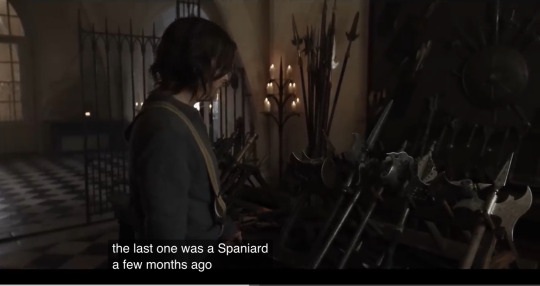
When seemingly random stuff like this gets brought up, it’s normally fair to assume it’s symbolism or foreshadowing, and I felt pretty certain Spain would come up again sooner or later.
Then later, we meet Losang. He’s the leader of the Nest, and he first came in contact with the nuns and Laurent on his way back from a pilgrimage to Santiago de Compostela in Spain. "Compostela" refers to "the field of stars" under which the pilgrims traveled, a reference to the Milky Way.

That certainly tickles my TD brain, concidering how many astronomical references we have had around Beth, such as Sirius and Venus, satellites and eclipses to name a few.
Camino de Santiago to Santiago de Compostela is one of the world's most famous pilgrimages, and can be reached through a number of different routes. Isabel's convent was situated relatively close to the starting point of the French Way:
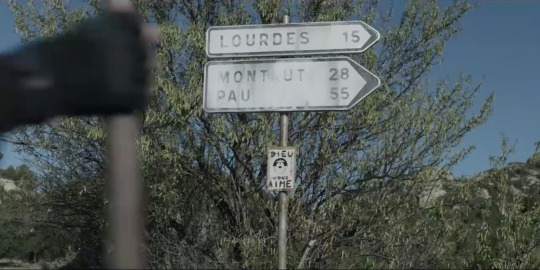
I have a whole theory in my drafts on potential references to El Camino de Santiago from years ago, which I might have to revisit now. Also, keep in mind that the working title of TWDDD was "Pilgrim":

But the most compelling thing about filming in Spain is an absolutely brilliant discovery made by @galadrieljones back when the final season of FTWD aired. We see Dwight, Morgan and Sherry share a scene, and a series of coordinates were given, supposedly to a P.A.D.R.E repeater station.
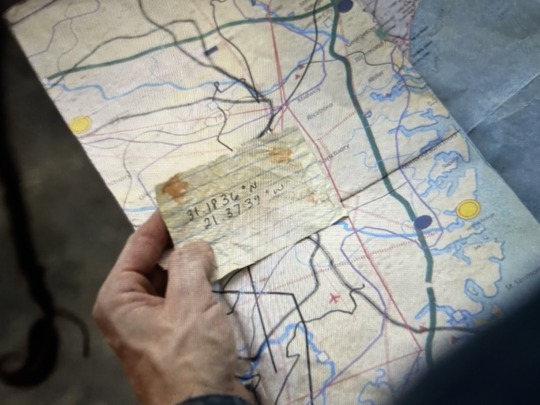
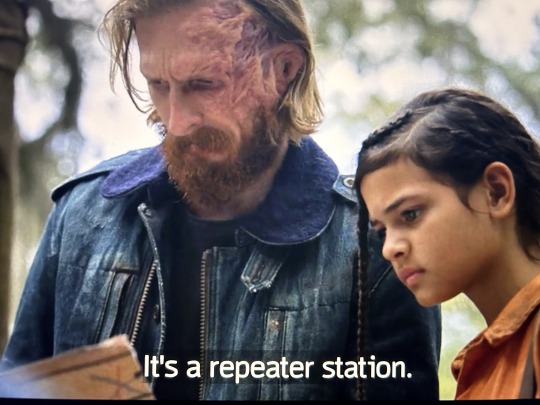
In reality, the coordinates corresponded with an area of the Atlantic Ocean near an archipelago called the Canary Islands. The islands, though situated off the coast of west Africa, are Spanish territory, and are famous (and slightly infamous, to be honest) for hordes of pale, vitamin D-deficient, sun-deprived north Europeans like myself as a holiday destination.
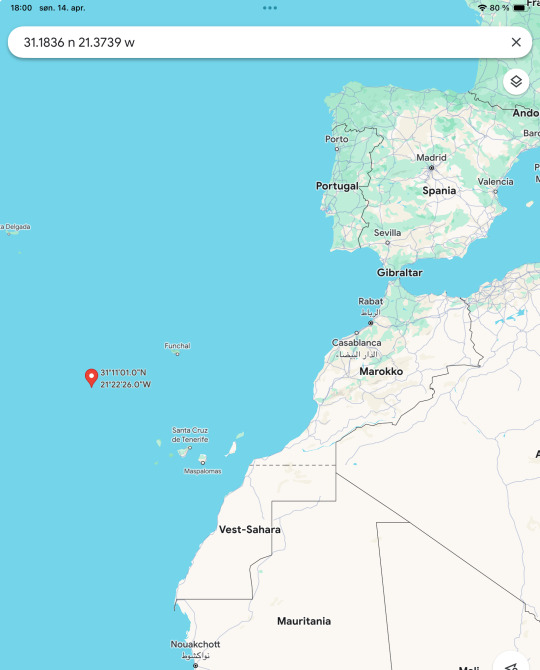
The part of it that’s particularly interesting for TD is that the etymology of the word Canary/Canarias shows it is derived from Latin “Canis”, meaning dog.

And as we know, that’s Sirius symbolism. Sirius means return/rebirth/resurrection. It refers to Sirius the Dog Star, who returns to the sky one morning right before dawn, after having been “just gone” for some time. I've written many posts on that, here's one.
There’s even a particular type of dog breed that’s associated with the Canary Islands, Presa Canario:
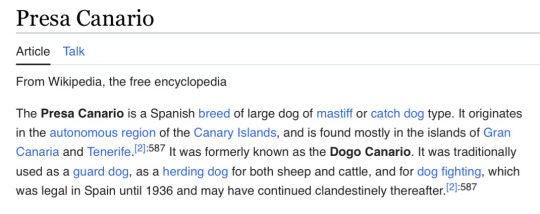

As a fun fact, in TWDDD season 1, Daryl’s original plan to get home involved getting on a boat that would eventually take him to Newfoundland, Canada. That’s also a dog reference, it refers to Newfoundland dogs:
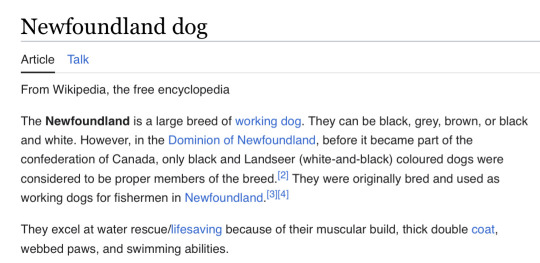

As I’ve been saying, dog symbolism is Sirius symbolism, we learned that from 4x13 Alone. It means return/rebirth/resurrection. Daryl’s plans to return via Newfoundland fell through when he had to save Laurent from walkers, but the symbolism of it is still valid.
And as an extra fun fact, there’s even a location on Newfoundland, Canada, with the name Canary Islands…

…do with that what you will...
Another really interesting thing about the Canary Islands is that they provide an excellent starting point for transatlantic crossings. This is due to the consistent trade winds that blow from east to west, and sailors have taken advantage of this phenomenon for centuries.
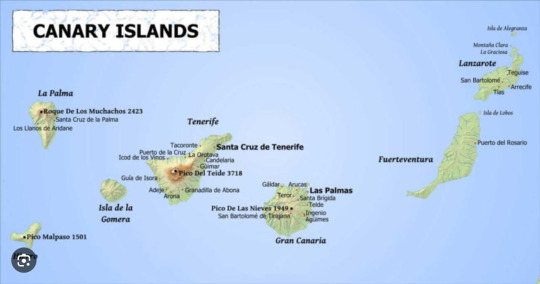

Of course, we don’t know if Daryl will make it to the Canary Islands, and even if he doesn’t, I’m still exited about Spain, for the reasons laid out above. But the potential reference to the Canary Islands through the coordinates from FTWD is a super interesting clue, and it involves dog/Sirius symbolism, which makes me very happy.
Also, the coordinates from FTWD supposedly led to a repeater station, which is a radio reference. That means, the repeater station is a Sirius symbol both as a radio reference, as well as a dog reference, in that the coordinates in reality points to a stretch of ocean near the Canary Islands.
Whatever the coordinates were meant to signify, they sure as hell didn’t point to no repeater station in Georgia.
So yeah. Might be nothing, but could be something. The off-season is for speculating.
#team delusional#bethyl#daryl dixon#beth greene#team defiance#the walking dead#beth x daryl#twd#daryl x beth#ftwd#twddd#ddtboc
40 notes
·
View notes
Text
CANADIAN ENGLISH
North American English is the most generalized variety of the English language as spoken in the United States and Canada. Because of their related histories and cultures, plus the similarities between the pronunciations (accents), vocabulary, and grammar of American English and Canadian English, the two spoken varieties are often grouped together under a single category.
Many times British, American and Canadian people cannot distinguish when someone is speaking if they are American or Canadian.
This is because Canada borders both the United States and Alaska.
Canadian Spelling
As in most matters, Canadian spelling is somewhere on that ill-defined continuum between British and American practices. Also as in most matters, Canadian spelling is a little more flexible than either British or American spelling. While, in general, it is closer to the British, the American variant is sometimes preferred, and often either would be considered acceptable (although the British is still usually considered “more correct”).
It can even be argued that there is a regional bias within Canada: in general terms, Ontario, British Columbia and Newfoundland are usually closer to the British usage, and Alberta and the Prairie provinces closer to the American.
Throughout part of the 20th century, some Canadian newspapers adopted American spellings,for example, color as opposed to the British-based colour. Some of the most substantial historical spelling data can be found in Dollinger (2010)and Grue (2013) The use of such spellings was the long-standing practice of the Canadian Press perhaps since that news agency's inception, but visibly the norm prior to World War II.The practice of dropping the letter u in such words was also considered a labour-saving technique during the early days of printing in which movable type was set manually.Canadian newspapers also received much of their international content from American press agencies, so it was much easier for editorial staff to leave the spellings from the wire services as provided.
In the 1990s, Canadian newspapers began to adopt the British spelling variants such as -our endings, notably with The Globe and Mail changing its spelling policy in October 1990. Other Canadian newspapers adopted similar changes later that decade, such as the Southam newspaper chain's conversion in September 1998. The Toronto Star adopted this new spelling policy in September 1997 after that publication's ombudsman discounted the issue earlier in 1997. The Star had always avoided using recognized Canadian spelling, citing the Gage Canadian Dictionary in their defence. Controversy around this issue was frequent. When the Gage Dictionary finally adopted standard Canadian spelling, the Star followed suit. Some publishers, e.g. Maclean's, continue to prefer American spellings.
CANADIAN RAISING
Canadian raising (also sometimes known as English diphthong raising) is an allophonic rule of phonology in many varieties of North American English that changes the pronunciation of diphthongs with open-vowel starting points. Most commonly, the shift affects /aɪ/ ⓘ or /aʊ/ ⓘ, or both, when they are pronounced before voiceless consonants (therefore, in words like price and clout, respectively, but not in prize and cloud). In North American English, /aɪ/ and /aʊ/ usually begin in an open vowel [ä~a], but through raising they shift to [ɐ] ⓘ, [ʌ] ⓘ or [ə] ⓘ. Canadian English often has raising in words with both /aɪ/ (height, life, psych, type, etc.) and /aʊ/ (clout, house, south, scout, etc.), while a number of American English varieties (such as Inland North, Western New England, and increasingly more General American accents) have this feature in /aɪ/ but not /aʊ/. It is thought to have originated in Canada in the late 19th century.
As its name implies, Canadian raising is found throughout most of Canada, though the exact phonetic quality of Canadian raising may differ throughout the country. In raised /aʊ/, the first element tends to be farther back in Quebec and the Canadian Prairies and Maritimes (particularly in Alberta): thus, [ʌʊ]. The first element tends to be the farthest forward in eastern and southern Ontario: thus, [ɛʊ~ɜʊ]. Newfoundland English is the Canadian dialect that participates least in any conditioned Canadian raising, while Vancouver English may lack the raising of /aɪ/ in particular.
Canadian raising is not restricted to Canada. Raising of both /aɪ/ and /aʊ/ is common in eastern New England, for example in some Boston accents (the former more likely than the latter),as well as in the Upper Midwest. South Atlantic English, New Orleans English, and the accents of England's Fens feature it as well.
Raising of just /aɪ/ is found in a much greater number of dialects in the United States; some researchers have begun to refer to raising of /aɪ/ without raising of /aʊ/ as American Raising. This phenomenon is most consistently found in the Inland North, the Upper Midwest, New England, New York City, and the mid-Atlantic areas of Pennsylvania (including Philadelphia), Maryland, and Delaware, as well as in Virginia. It is somewhat less common in the lower Midwest, the West, and the South. However, there is considerable variation in the raising of /aɪ/, and it can be found inconsistently throughout the United States.
EH
Eh (informal, chiefly Canada, Upper Midwestern US, New Zealand, UK) Used as a tag question, to emphasize what goes before or to request that the listener express an opinion about what has been said.
In North America, the word is stereotypically associated with Canada and can sometimes convey that the speaker is trying to sound (sarcastically) Canadian outside the country. However, it is in widespread use in many other parts of the English-speaking world, including the northern United States, Australia, New Zealand, England, Malaysia, the Philippines, Scotland, Singapore, South Africa and Nigeria.
Silvio Pasqualini Bolzano inglese ripetizioni English
#dialects#lexicography#lexicology#linguistics#english#american english#languages#united states#canada#united kingdom#canadian#usa#spelling#accents#pronunciation#phonology#phonetics#great britain#vocabulary#region#variety#slang#informal#colloquialism#movies#films#voice acting#england
7 notes
·
View notes
Text
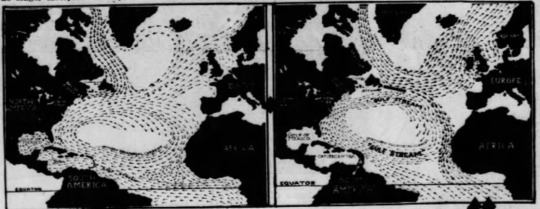
In 1913, Brooklyn-based engineer Carrol Livingston Riker approached the papers with a plan to solve the issue of cold winters in Canada and New England... by diverting the Gulf Stream that provides Western Europe with its temperate climate so that the warm ocean currents provide their benefits to the Eastern parts of North America instead, such as warmer winters and fewer icebergs.
The manner with this would be achieved, Riker states, would be by building a 200 mile long pier off the coast of Newfoundland along the Grand Bank to where the deep ocean begins, meaning that in places the pier would have to be some 300 plus feet deep in places.
Naturally the fact that this would plunge the British Isles and Western continental Europe into freezing winters that match those in Northern Canada (Britain being at the same latitude as places like Labrador, Canada) isn't lost on the writers of the article in the St Louis Star and Times, nor the fact that as Canada was a British colony at the time which the United States would have to potentially annex to complete the megastructure, but Riker considers the overall net good (for Americans) makes the benefits outweigh the costs.
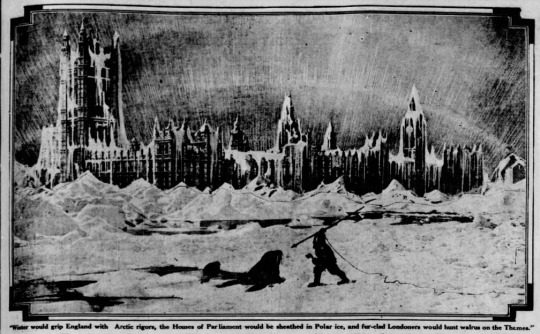
Despite the devastating climate catastrophe for Europe (the Star and Times amusingly suggesting that it could also cause the poles to shift) that could occur from this theoretical plan, Riker nonetheless received support from folk from both Harvard and Yale, in addition to the United States Naval Observatory, with the engineer also presenting his arguments so successfully to New York Representative Calder he attempted to introduce a bill to Congress to obtain funding for the project...
This did not actually happen, obviously, but it bring to mind a similar project first proposed in 1928 by German architect Herman Sörgel, which he named Atlantropa. Here Sörgel proposed damming and draining the Mediterranean, with the control flow of water through dams at Gibraltar and other points around the sea, which he theorised would create endless energy, new resources and uncovered land for people to settle in Southern Europe and Northern Africa.
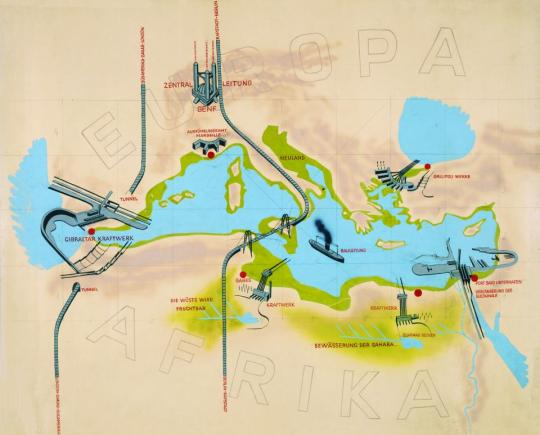
However, much like Riker's pier, this would have ALSO created horrible climate change issues (rather than creating new farmland it would essentially turn the Med into a giant salt desert, which the sun would heat further causing the potential desertification of Southern Europe), technological issues with constructing the project in the first place, would have bankrupted all the countries that required access to the Med to trade, AND further opening up Africa and the Middle East to even more colonisation efforts by European powers.
24 notes
·
View notes
Text
extremely long and detailed answers below! i may or may not have gone full adhd hyper focus mode on this one 😅
VOTE BEFORE GOING ANY FURTHER!!
or read ahead and vote once you know the correct answer i don't control you - you do you bud
there is an american state canadians affectionately refer to as "south canada"
good ol' minnesota! basically, minny and parts of canada (mainly ontario and BC) have such similar climates, flora/fauna, and culture that it's pretty easy to see each other as cross border cousins. it's almost like political borders are social constructs or something. wild. anyways, one factor of the whole two lands pointing at each other and yelling "same hat!" is the not insignificant portion of minnesotans who have canadian ancestry. a shared passion for hockey is another (arguably more significant) factor in canadians' continued fondness for this one very specific region of america.
-> british columbians also really like portland (we find common ground in being unbearably pretentious) but the rest of canada makes fun of us for it.
the base of our national cocktail is vodka, tomato...and clam juice
okay so it's called a caesar and is basically a bloody mary with one major difference. here's a list of ingredients:

and for those not in the know, clamato juice is a combination of tomato and clam.

yeah. istg it's actually a delicious cocktail. though admittedly i may have been indoctrinated at an early age.
we share a land border with our ultimate archenemy: Denmark
The Whiskey Wars! okay so Hans Island is this dinky little uninhabited piece of land literally smaller than 2 clicks long, and both canada and denmark have tried to claim as their own since like, the late 1800s. it was a low key, essentially meaningless land dispute for a decent chunk of the 20th century but then. it's the 80s and a group of canadian soldiers are fucking wrecked on cocaine. they roll up to hans island, plant a canadian flag in the barren ground and place underneath it a bottle of primo canadian whiskey. denmark responds by hauling ass to the flag site and replacing it with their own, drinking the whiskey and leaving a bottle of danish schnapps. thus began 3 decades of international capture the flag, where we basically took turns planting our flags and leaving each other liquor, sometimes with cute little notes trash talking one another. naval ships passing each other in international water and emphatically waving their flags at each other became a time honoured tradition.
in 2022, canada and denmark officially settled the dispute by splitting the island down the middle and each taking half. it was meant as a symbolic gesture of solidarity with ukraine after it was invaded by russia, which. kinda stupid? but also kind of lovely. and now we get to share a land border with our beloved frenemy <3
there is a province in which everybody speaks with an irish sounding accent
girl. please allow me to let me tell you about Newfoundland and Labrador, canada's easternmost province, and an island unto themselves. like they are literally an island but also just so culturally unlike anywhere else in the country. during the colonization of canada, the majority of europeans who settled in the area were from either Ireland or the West Country of england. between the two you have like, 8 distinct dialects, and that's before you add the influence of scottish, french, and algonquian. this linguistic stew bubbled away and over the years has resulted in the newfie accent/dialect. it is delightful. newfies are also just super friendly in general towards visiting mainlanders (but watch out! they will lull you into a false sense of safety with their hospitality and then gleefully drink you under the table. you have never had a hangover like the hangover from a newfie drinking contest. if one challenges you just. say. no.)
they also cook steaks to the point they become utterly indistinguishable from a hockey puck but it's okay, we forgive them.
here's a clip of american comedian Gianmarco Soresi encountering a newfie accent in the wild during a gig in edmonton (the title calls him a 'dumb american' but it's from his own youtube channel)
youtube
we had a 90s hair fad called "the beaver" it was like a mullet! but worse :)
NOT TRUE! thank god. although if it was true i'd like to think that it would have by now been appropriated and by some enigmatic lesbian magicks made sexy (as they have so successfully done with the mullet)
we passed a law specifically to ensure "sorry" is not an admission of liability
i know right. apparently because it's so common in canada to use "sorry" not only as an apology, but also as an expression of sympathy, the government instituted "apology laws." they preclude courts, tribunals, and arbitrators from finding that an apology is an admission of liability.
there was this one time we burned the white house down. allegedly. (sorry)
America has actually invaded Canada twice (in 1775 and 1812). they lost pretty much every battle -thanks in large part to the unsung efforts of first nation and indigenous tribes who sided with the british. anyways it was in 1812 that canadians invaded america right back, took control of the capital, and burned a bunch of shit down - including the white house! canadians are very proud of this, despite the fact it was ~technically~ a war between america and britain. "canada" didn't exist as an official country until 1867 but...well. what is historical accuracy in the face of an opportunity to mock america ¯\_(ツ)_/¯
iconic canadian musical comedy trio The Arrogant Worms have a whole song about it. it's a wild oversimplification of events and also a total banger
to this day america's official position is that this very much did not happen.
the majority of canadian kids grow up playing soccer instead of hockey
while hockey is the official winter sport of canada (lacrosse is the official summer sport) and hands down the most watched sport in the country, the majority of canadian families simply can not afford to let their kids play it. with expensive equipment, league fees, and travel expenses (just to name a few), hockey currently costs more than equestrian sports. you can own and care for an actual goddamn horse for less money than it takes to put your kids in hockey. so while most kids grow up playing pond hockey and shinny in the backyard, only a privileged minority ever become involved at a competitive level
our money is plastic, holographic, and semi-transparent (and sometimes pink!)
our money is so pretty you guys!!! it looks like it belongs in a barbie play set. also, every bill has braille on it for the vision-impaired! we are the only country who has this which is. genuinely wtf. it's such an obvious and easy accommodation

just ignore all the faces of various colonizers and imperialists and look at the pretty colours and shiny bits 🙃
and that's all folks! i hope you had fun and maybe learned a little about canada. if you found any of this interesting, i would say "look into more fun and funky fresh canadian history!" but honestly? our history texts are kinda infamously dry and boring. unless you focus on resources from indigenous, first nations, metis and/or inuit voices, and then it gets real interesting real fast. also infuriating. hey did you know canada had chattel slavery for a hot second? anyways this was meant to be about silly things only. here, enjoy this video from a 1994 episode of sketch comedy show Royal Canadian Air Farce ft. legendary Oneida actor Graham Greene
#this was actually so fun to make#even though i think the answer might be a little obvious? not sure#canada#canadian history#history#polls#silly fun stuff only!#might make a serious one next#long post#but i used a read more because i love and value you all#edit: i have made myself a liar and removed the read more#you WILL be forced to look at my post i have gone MAD with patriotism!#don't worry it will pass lmao
51 notes
·
View notes
Text
@brb-on-a-quest
Birb, I promised you a lil intro to each Canadian province and I didn't forget, I swear. Here ya go:
From east to west we've got... *drumroll*...
British Columbia - home of Vancouver, famed for the film industry and its awful awful housing prices. has rainforests and mountains.
the Yukon - not actually a province, but a territory, which are all very north and snowy. next to Alaska.
the Northwest Territories - also a territory. used to also include Nunavut. this is more of the "wild north" that ppl think about when they think of Canada.
Alberta - home of Calgary and Edmonton. Calgary has the Calgary Stampede and no rats. Edmonton has a giant mall.
Saskatchewan - lots of wheat fields and wide open sky. home of Saskatoon, for which Saskatoon berries are named.
Nunavut - yet another territory. was part of the Northwest Territories until 1999.
Manitoba - i'll be honest, I usually forget Manitoba exists (sorry manitobans). home of Winnipeg.
Ontario - home of Ottawa, our capital, and Toronto, our biggest city. also Niagara Falls, where I used to be 😢
Quebec - my destination this month! home to Montreal and a lot of very French people. keeps trying to leave Canada but has not yet succeeded.
New Brunswick - only bilingual province in the country. both a Maritime and Atlantic province.
Prince Edward Island - known for lobsters, red sand, and Anne Shirley. smallest province. both a Maritime and Atlantic province.
Nova Scotia - home of Halifax. sometimes has a rivalry of sorts with Newfoundland. both a Maritime and Atlantic province.
Newfoundland - home of St. John's, icebergs, and accents impossible to understand. an Atlantic province.
6 notes
·
View notes
Photo
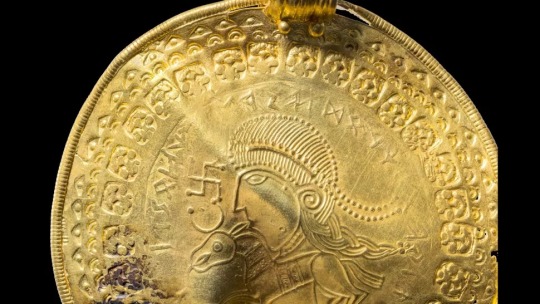

Earliest Mention of Odin 'King of the Gods' Found in Treasure Hoard From Denmark
The oldest known inscription mentioning the Norse god Odin has been found on a gold pendant in Denmark from the fifth century A.D.
A gold pendant recently unearthed in Denmark bears the earliest known inscription featuring the Norse god Odin.
Archaeologists think the pendant — which is technically known as a bracteate and made of thin, stamped gold — dates to the fifth century A.D., making it 150 years older than the previous oldest known artifact mentioning Norse mythology.
"It is the first time in the history of the world that Odin's name was mentioned," Lisbeth Imer (opens in new tab), a runologist and writing expert at the National Museum of Denmark, "This means that Norse mythology can now be dated all the way back to the early fifth century."


The inscription, in letters called runes, says, "He is Odin's man" and the name "Jaga" or "Jagaz" in an early form of the Norse language. It is thought to refer to its owner, an Iron Age chieftain or king, who may have claimed the god as an ancestor.
"I think that the wording refers to the central motif depicting a man with a horse, portraying the local magnate or king, who presents himself a descendant of the king of gods and the god of kings, Odin," Imer said. "We have other literary evidence that the kings liked to present themselves as descendants of gods."
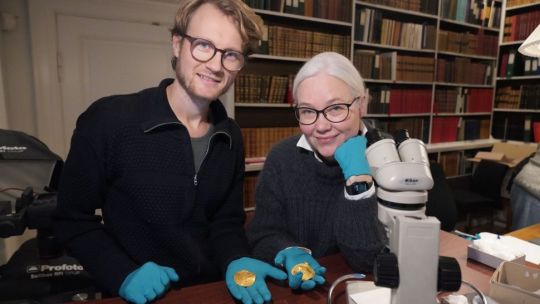
Imer and her colleague, linguist Krister Vasshus (opens in new tab), spent more than a year deciphering the runic inscription on the bracteate, which was part of a stunning gold hoard unearthed in Jutland, Denmark, in 2021. The trove contained almost 2.2 pounds (1 kilogram) of gold and is now known as the "Vindelev hoard" after a nearby town.
Norse Gods

In Norse mythology, Odin was the king of the gods; the god of death, wisdom, magic and runes; and the "All-father" of both gods and mortals. Although the Norse pantheon featured dozens of deities, Odin was one of the three main gods worshipped in the Norse religion, alongside Thor and Frey.
Odin is often portrayed with only one eye, because according to legend, he gouged out his other eye to gain incomparable knowledge. He is also the Norse form of the Germanic god Wotan and the Anglo-Saxon god Woden, although they both seem to have had two eyes.

Imer said the runic inscription seemed to be more weathered than the rest of the pendant, possibly because it was a holy inscription that was touched to "gain power."
"It was a time when religion was more integrated into daily life," she said in an email. "The leaders of society were responsible for cultic activities and performing rituals to uphold a good relationship with the gods."
It's difficult to interpret the tiny runes, however, because the words run into one another without spaces and because the name "Odin" is spelled as "Wodnas" and not in the regular form "Wodinas" — possibly because it is written in an early form of Norse called Proto-Norse, Imer said.
Proto-Vikings

Archaeologists think the Norse descended from North Germanic peoples who migrated into Denmark and other Scandinavian countries from about the fourth to the first centuries B.C. After the eighth century A.D., the seafarers among them became famous as Viking raiders in Europe; they established colonies in parts of Britain, France, Iceland and Greenland for a time. Some Vikings even made it to the Faroe Islands and Newfoundland in what's now Canada.
The Vindelev hoard, however, comes from a "proto-Viking" age before the Norse were known (and feared) as Vikings.
The inscription's discovery has already influenced the interpretation of inscriptions on other gold bracteates; more than 1,000 have been found around northern Europe, and more than 200 of them have inscriptions.
"The inscription on the Odin bracteate is actually copied onto one of the other bracteates from Vindelev with a slightly different motif," Imer said. "But the carver who copied the inscription misunderstood the wording, so in many places he just carved some haphazard strokes and lines."
It also seems that the copied bracteate was stamped from the same die as another found in 1852 on the Danish island of Funen and given to the National Museum, although its inscription was never deciphered.
"So, the National Museum has been in possession of an inscription with the word Odin on it for 170 years — but we didn't know until recently," Imer said.
By Tom Metcalfe.
#Earliest Mention of Odin 'King of the Gods' Found in Treasure Hoard From Denmark#vindelev hoard#metal detector#metal detecting finds#treasure#gold#gold jewelry#ancient artifacts#archeology#archeolgst#history#history news#ancient history#ancient culture#ancient civilizations#norse history#long reads
65 notes
·
View notes
Note
I happen to like Celtic music a lot too (though not very familiar with the Canadian side apart from Stan Rogers) - have you heard of Lankum? They're an Irish group that have strange and devastatingly beautiful takes on trad songs. If you don't know them and want to check them out, "The Wild Rover" and "Cold Old Fire" are good starting places
This is really lovely, thank you! The name Lankum was familiar to me, and when I searched them in my music collection I found that I had couple of their songs, one-offs that they'd contributed to various Celtic compilation albums I've picked up over the years. But I don't actually know them, I've listened to both songs you recommended and enjoyed them, but particularly the latter:
youtube
Can't stop listening to this one, I'm going to check out more by this band but not for a bit because I'm only interested in listening to this song right now.
For someone who grew up on Celtic music, I know surprisingly few bands that are actually based in Celtic countries. I almost said I know few bands that are from Celtic countries, but that's not true. I'm into plenty of bands made up of people from Scotland and/or Ireland, but mainly people who immigrated from there to Canada and started their music career here. Though the bulk of my Celtic music collection is by people who were born in Canada, descended from Celtic immigrants, but who grew up in parts of Canada where that musical tradition is very strong and have carried it on. Specifically the East Coast of Canada. Which is the bit closest to CelticLand.
Basically, as a broad, massive oversimplifcation, the Canadian East Coast province of Nova Scotia is full of descendants of Scottish immigrants, and Newfoundland is full of Irish people, and they came over here ages ago with their music, and it was a community that was culturally insulated, in many ways, enough so they kept a lot of their traditions, long enough to develop particularly Nova Scotian and Newfie strains of traditional music, and that's what I grew up listening to a lot. Particularly this island off the coast of Nova Scotia called Cape Breton, which is an incredible place where kids grow up learning fiddle in music class and step dancing in gym class and Gaelic in language class, and fucking all of them grow up to be folk musicians, it genuinely amazing what a large percentage of my music collection comes from that one island with a population of under 100,000 people.
I know a few musicians who are actually based in the UK. The one I know best is Runrig, and I only got into them because their lead singer used to be Bruce Guthro, a brilliant folk musician from Cape Breton, Nova Scotia. I've been a big fan of Bruce Guthro since I was about 10, and I was about 17 when I decided to check out the Scottish band that I vaguely knew he fronted for some reason, and I quickly learned that Runrig was, in fact, way too big and famous and long-running a band for it to make sense that they got fronted by a relatively small-time Canadian guy for years. But I guess they could recognize incredible talent when they saw it, and they were absolutely right to, everyone should have. Everyone. I saw him live probably fifteen times in fifteen years (way more if you count seeing him more than once on the same weekend because I'd follow him around the folk festival) and it wasn't nearly enough. He did all kinds of stuff with Runrig and so many Canadian folk musicians, one of those guys who was always credited in the acknowledgements on other people's album jackets, always setting up songwriter's circle events and going all over the folk festival circuit and keeping everything alive, but he only ever actually made seven solo albums, which wasn't nearly enough. I might be getting slightly sentimental because Bruce Guthro died late last year, there were tributes to him from the folk music community all across Canada and it was utterly heartbreaking.
Anyway, to be less sappy, Runrig is great, I also got really into the Scottish band Skerryvore after I saw them at a Canadian folk festival about ten years ago. I like Julie Fowlis a lot, if ever want to hear Gaelic lyrics sung by someone who actually speaks the language fluently (I have a lot of Gaelic lyrics in my music collection, but almost all of it is sung by Canadian Anglophones who learned it in Cape Breton language classes). I've got the entire discographies of The Pogues and The Dubliners, obviously. The big ones. I've got an album by Christy Moore that I love and always think I should get more of those. I'm trying to think of other actual Irish or Scottish musicians I have in my collection, and there must be more than that, but I'm not coming up with a lot. A bit of Dougie MacLean, obviously.
A few months ago I saw Bobby Watt live and he was amazing, and he's from Scotland. But he moved to Canada when he was 20, and he's now about 70. David Francey immigrated to Canada from Scotland when he was young, and he's one of my absolute favourites. He an interesting case because you can hear his very thick Scottish accent in his early albums, and it's not as strong in later ones. While Bobby Watt still sounds more Scottish than Frankie Boyle when he talks, which he has to be doing on purpose, it's been 50 years. I'm actually going to see David Francey live tomorrow, I'm going to a proper folk festival for the first time since pre-COVID (I've been to live music a bunch since then, but not a specific folk festival) and he's playing in the afternoon. Geoff Kelly from Spirit of the West was actually born in Scotland - I think the other members of the band were born in Canada to Scottish immigrants - and of course I have Spirit of the West's discography plus Geoff Kelly's solo album where he does nothing but play the Celtic flute for ten songs. It's great studying music.
I'm aware that there are Celtic places besides Scotland and Ireland, by the way. And that Scotland and Ireland are not monoliths when it comes to their musical culture. I'm oversimplifying a lot here. When I saw Bobby Watt, it was a local venue's monthly Celtic night, and Bobby stuck to the remit really well, introducing each song by explaining which bit of Scotland or Ireland or Wales it came from, and at one point apologizing for being politically contentious at a Celtic night by playing a Cornish song when not everyone agrees that Cornwall is Celtic. I can sort of recognize what different types of music you get in different regions across the ocean (a lot more Gaelic lyrics in the Hebrides than mainland Scotland, I know that much), but to be honest, I'm much better at understanding the differences in different types of Celtic music based on what part of Canada they're from, than what part of the actual Celtic countries they're from.
Honestly, I got a lot of my main music taste from folk festivals I attended in Canada, or from my father, who got most of his music taste from folk festivals he's attended in Canada both before and after I was born. So most of it's Canadian. Which I realize is weird when I say I'm into Celtic music, and then I don't actually know all that much music from Celtic countries.
Oysterband. I've been a massive fan of Oysterband since I saw them play the Stan Rogers Folk Festival in Nova Scotia, Canada in 2002, when I was 11 years old, and I absolutely fell in love with them. I think they have some Celtic members? I'm not sure, they might all be from England. But they play that type of music and they're from across the ocean.
Anyway, I have gone wildly away from the original message I was sent, for replying with a whole bunch of stuff you did not ask for. I really did enjoy those two songs you recommended, I will check out more of them. The harmonies in particular were lovely. I really love a nice harmony.
On that subject, I've now got all sentimental about Bruce Guthro so I'm going to end this post with a video of him performing lead vocals with Runrig in Scotland, years ago. One of my favourite songs of theirs.
youtube
Edit: I'd posted this but then remembered that you mentioned Stan Rogers, in that original message that I've now got far away from responding to. Here's a song that Bruce Guthro wrote in Stan Rogers' memory, from one of his all-too-few solo albums, it's really lovely:
youtube
I saw Stan's brother Garnet Rogers perform a few months ago, at the same local venue where I saw Bobby Watt, and he did a quick mention of Bruce Guthro and how much he did for folk music too. Sorry that this post is all over the place. I have too many things to say about Canadian folk music. But I should probably know more about actual Celtic music.
3 notes
·
View notes
Note
Do you know if there's an alt Indigenous name for Canada? Like Aotearoa for New Zealand?
So the problem with your thinking is that North and South American countries that exist now were mapped out by settlers who had no interest in or respect for the Indigenous Nations already living on this land. The national and international borders of today do not match up with traditional Native territories.
For example, the following were built on top of Mi'kma'ki, my people's homeland:
Nova Scotia
New Brunswick
Prince Edward Island
the Gaspé Peninsula of Québec
South-east part of Newfoundland
North-east part of Maine
(Mi'kma'ki also overlaps with other touching Native territory, like the Wəlastəkwewiyik's and Beothuk's.)
So to circle back to your question, no, there is no single Indigenous word equivalent to encompass Canada, because Canada shouldn't exist as it does. The closest answer I can give you is that most Algonquian peoples refer to the North American continent as Turtle Island, which you may have heard before. But if you want to respect Indigenous territories through language, you'd be better off looking up what specific homeland you're thinking about.
52 notes
·
View notes
Photo




hi i was informed that some of you guys wanted to know more about DM so i made a VERY BRIEF history of their relationship (half of which is completely ignoring each other because they live in completely different worlds but occasionally have mirrored experiences).
if you’re curious about the history, @quatschmachen tends to cover the NL side and I tend to cover the AB side and we don’t mind trying to answer or speculate about it. You can also check out the (rough!) timelines i drew up for procan for bert and ben. again want to stress that this isn’t a one true canonical reading, we just think it’s neat.
I’ll transcribe my messy writing and have some additional notes below.
---
1940s: [AB] just barely got provincial rights after 3 decades and is now about to strike oil. [NL] forced to give up independent nationhood and join Canada. [Didn’t notice each other at all].
- I think this is interesting to note because they have sort of reverse, mirror images of each other. Ben lost nation status after the war (after being ignored for literal centuries and getting the barest acknowledgement of responsible government from England in the 1850s) because Britain was concerned that NL would have another economic and political crisis as they did between the world wars where Britain had to step in and govern, even though NL was so economically profitable during and after the war that they were lending money to Britain rather than the other way around. Britain and Canada worked together to confuse and persuade NL to give up independence.
- Bertie meanwhile (and the other prairie provinces) actually had fewer provincial rights of control than all other provinces that had already joined confederation. Getting control of resources between the world wars was just in time for the major oil strike at Leduc in 1947. This combination of being perceived as a “lesser” province and sudden economic weight to throw around is still part of this chronic struggle AB has had (which has now manifested into AlBerTa SoVerEigNtY!!11)
---
1970s-1980s:
[AB] record profits during oil crisis, record losses when made to subsidize Canada] [National Energy Policy] [NL] losing out hydro profits to QC, struggling to benefit from offshore oil exploration. Catching record amounts of fish...
- Bert’s rich bitch phase really took off in the 70s, which is the era that people today still look back on with nostalgia and no small amount of bitterness. Because oil was so expensive around the world at this time, Canada essentially interfered in the industry, made Alberta sell oil at a discount to the eastern part of the country and taxed sales to the US, something they did not do with hydroelectricity exported from BC or Quebec. Alberta still felt like a colony of Canada rather than an equal partner in confederation for this reason.
- Likewise, NL was having its own battles with confederation during this period. Churchill Falls was a hydro-electric dam built in the 50s in Labrador, one of the largest in the world at the time. Electricity would be transmitted through Quebec and sold from Quebec to New York - but Quebec had little desire to share the windfall profits with Newfoundland. (This isn’t even touching on how the dam affected the people of Labrador, particularly the Innu). Likewise, the federal government had control of offshore resources, again cutting NL out of profit from oil exploration; equally urgently, the other offshore resource that had supported NL for the past 500 years, the fishery, was under federal control as well. The 70s saw the number of fishermen double and the (overestimated) stocks of fish rapidly decline...
---
1990s:
[AB] major recession and cuts, leaving farms for the oil patch. [NL] moratorium on cod fishing forced him to move west for work.
[opinions of each other] [AB as] “humourless tight-fisted entitled brat”, [NL as] “lazy, uneducated job stealer who won’t shut up”
- In 1992, Canada declared a moratorium on the cod fishery which immediately led to a mass out-migration of young people from NL and Atlantic Canada and leaving behind an aging population dependent on federal support. Meanwhile, a series of cuts and privatizations at the provincial level in Alberta and a pronounced lack of interest in diversifying the economy away from oil and gas (thanks Ralph Klein :/ ) meant leaving the farm for the oil patch was (and is) a more viable (though short term) lucrative option for both Albertans and other provinces looking for work.
- So they meet at last. And they absolutely despise each other.
---
2020s:
((what on EARTH is going on))
AB: please don’t leave me
[NL] thinks this is the funniest little meow meow on earth
- I don’t know exactly when the relationship between these two mellowed out. It was pretty tense still when I was growing up, and I wouldn’t say there was really a mutual appreciation between the two until maybe after the 2008 crash or so? But that’s me trying to apply arbitrary dates. There’s obviously still some tension today, and there’s also tension between those who stayed and those who went back home etc etc. It’s Complicated.
- but it’s interesting so i like to write them complaining and fighting over dumb things because it makes me laugh :) but I do think they would have reached some point where they started looking at each other’s histories and going “hey wait same hat”. Okay different hat... but you know what I mean. But I think they see pieces of themselves in each other and vice versa and it makes for an interesting dynamic (regardless of platonic or romantic interpretations).
- but yeah basically bert was socialized by bible thumping evangelists and then by coke dealing oil cowboys so you can understand why he has this weird complex about relating to other people in healthy ways, he’s just lucky that ben is old enough to find his quarter life crisis absolutely hilarious and actually somewhat sympathetic given that he understands what independence and interdependence actually mean from his lived experience. so yeah.
#projectcanada#iammatthewian#iamp: alberta#iamp: newfoundland#pc: alberta#pc: newfoundland#ralph campbell#benjamin o'reilly#dirty money#hapo doodles#traditional art#ink#and yeah i did think about how to address ben not being a kid for my own headcanon#i just haven't had the opportunity to use it for max comedy so just hold your horses#but when you read the history you can see why we find it easier to write him as an adult sooo#again sorry for the friggin essay
22 notes
·
View notes
Text
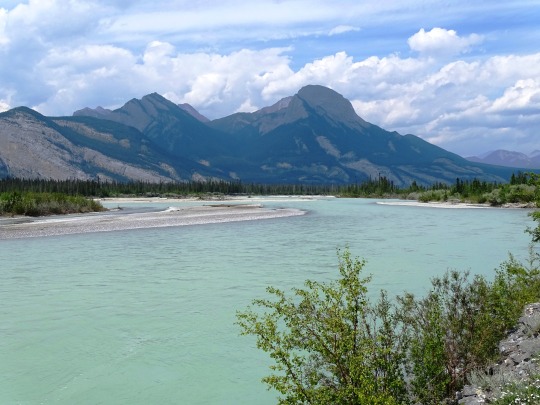

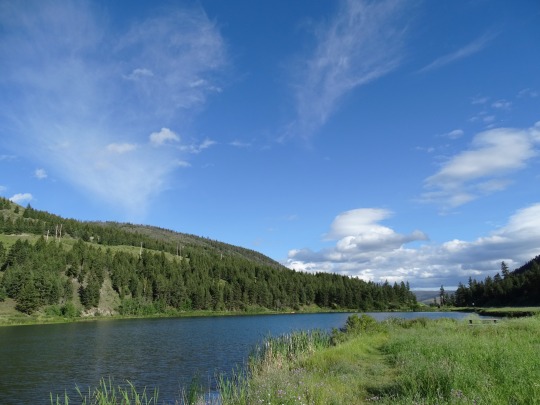
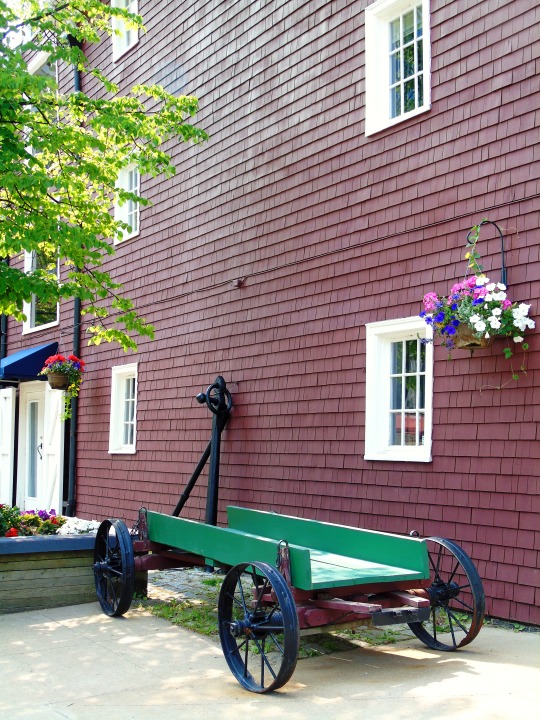


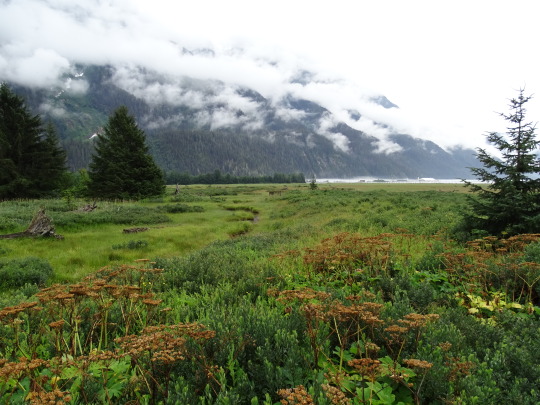
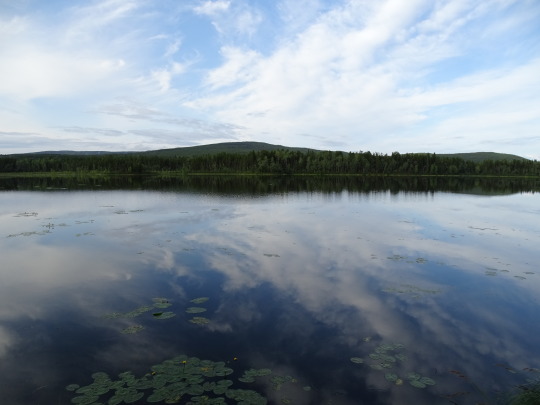


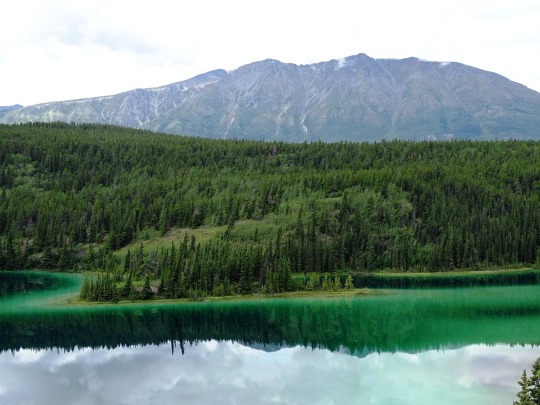

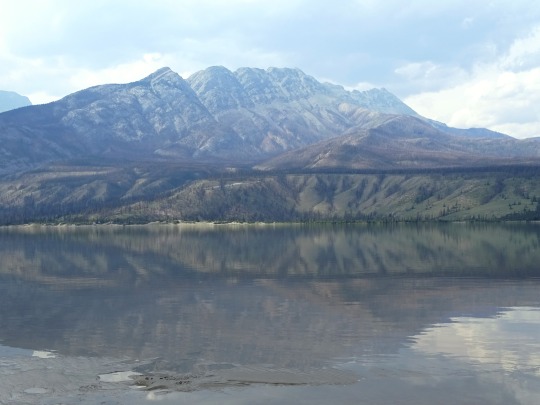


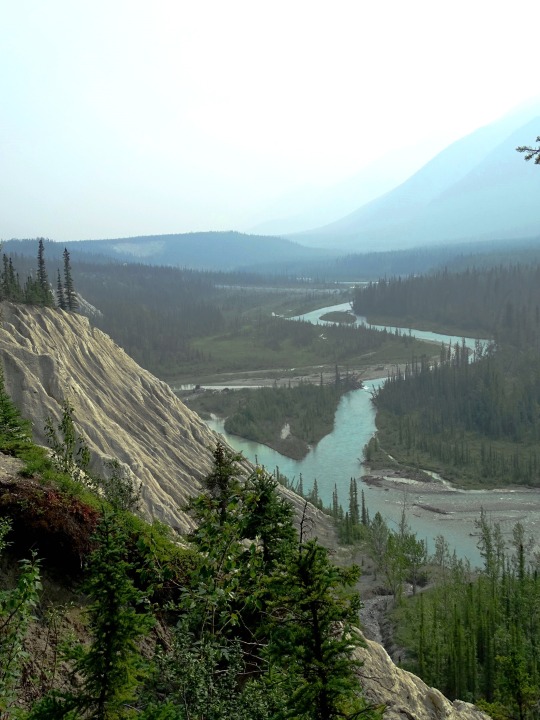
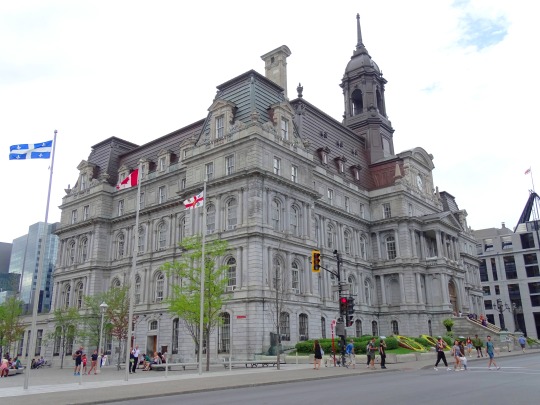
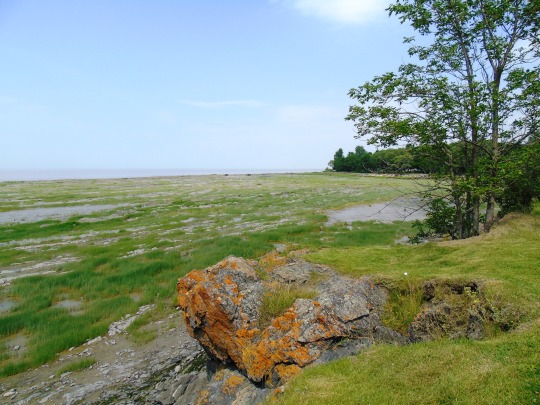
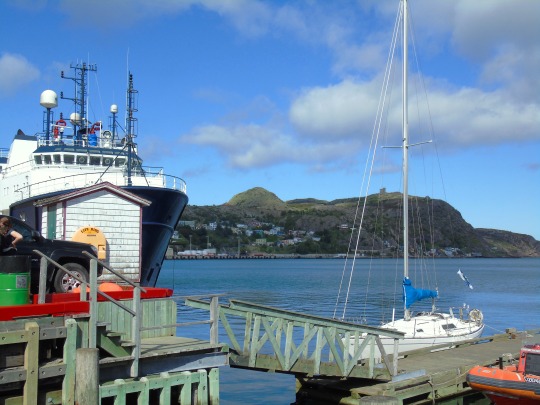
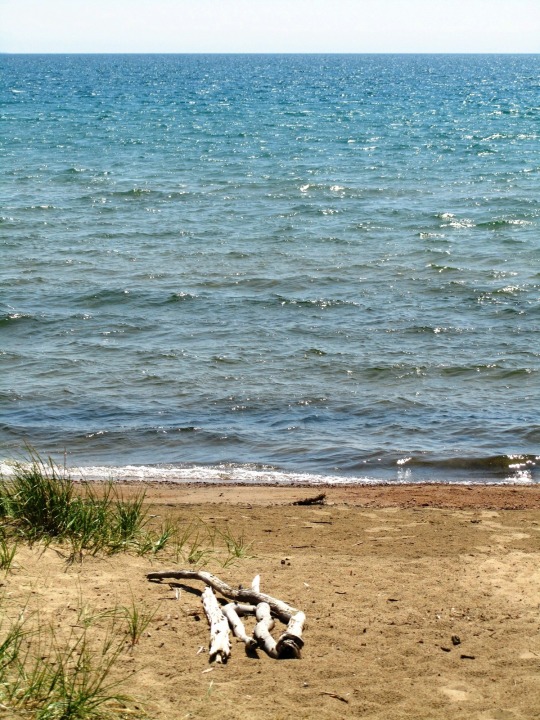
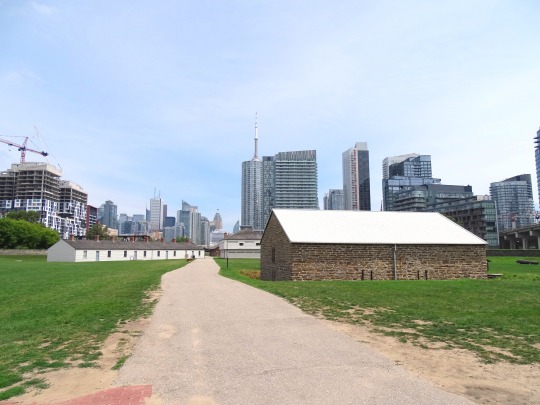

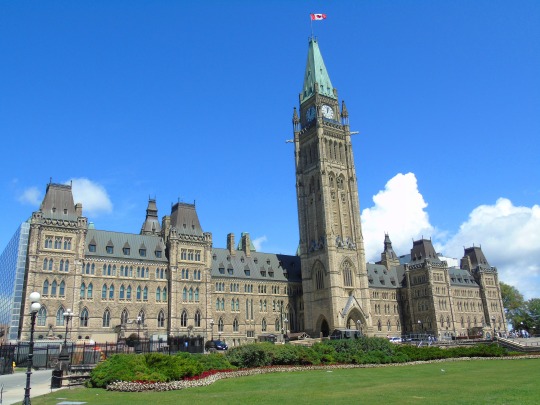
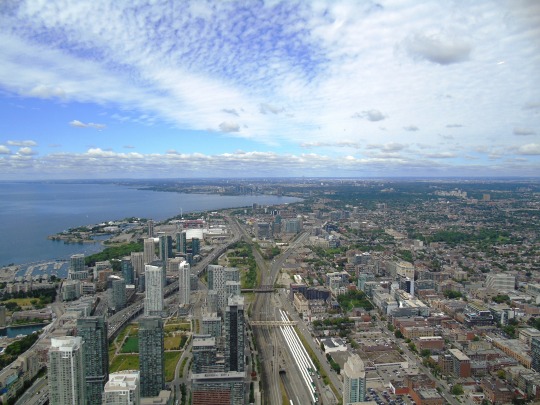
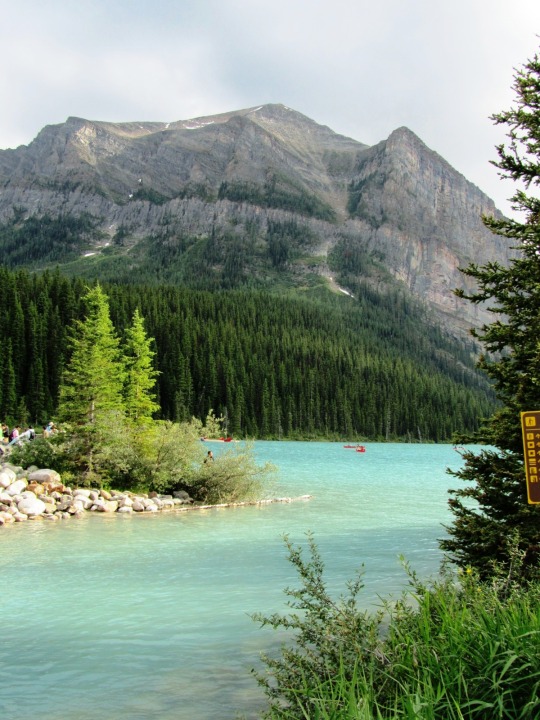
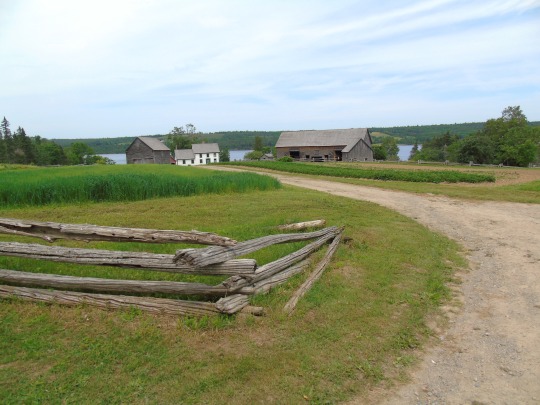
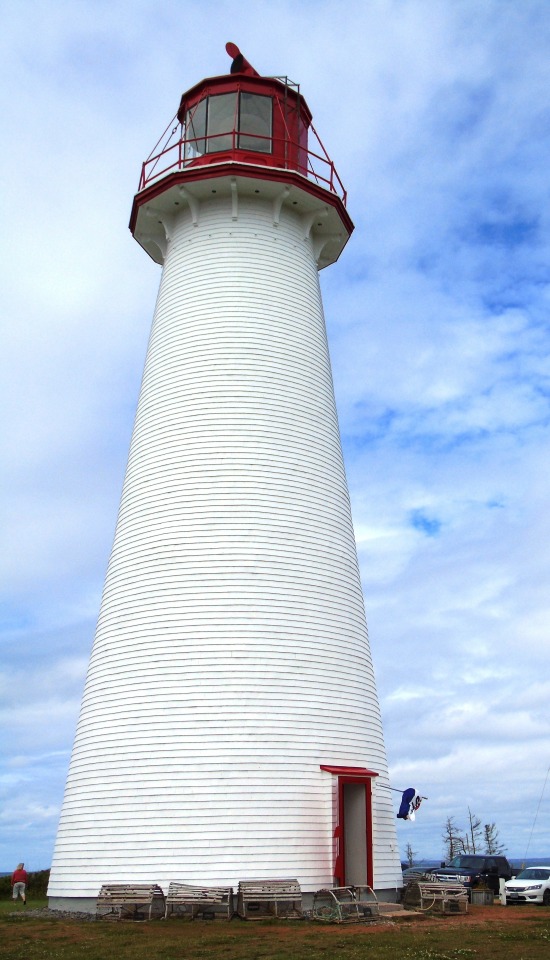



Statute of Westminster (11 December 1931) gave complete legislative independence to Canada, Australia, New Zealand, South Africa, Ireland (Free State), and Newfoundland (not then part of Canada).
Anniversary of the Statute of Westminster
The Anniversary of the Statute of Westminster is observed on December 11 every year. Although it is a holiday, Canadians still go to work, and it is pretty much an ordinary day for them. It is a nod to Canadian independence. The “Union Jack,” where logistics allow, is flown along with the Maple Leaf on federal buildings, airports, military bases from dawn to dusk to mark this day. It commemorates a British law that was passed on 11 December 1931. It was Canada’s final achievement of independence from Britain. The Statute of Westminster gave Canada and the other Commonwealth Dominions legal equality with Britain. These countries now had full legal freedom — except in areas which they chose. The Statute also defined the powers of Canada’s Parliament and those of the other Dominions. The day is mostly celebrated in Canada.
History of Anniversary of the Statute of Westminster
Before 1931, the British government had much influence over legislation passed by the Commonwealth Dominions (Canada, Australia, New Zealand, South Africa, the Irish Free State, and Newfoundland). Things began to change after the First World War — after the sacrifices of Canada and other Dominions on the battlefield stirred feelings of nationhood and desires for complete autonomy.
Canada began to assert its independence in foreign policy in the early 1920s. In 1922, Prime Minister William Lyon Mackenzie King denied help to British occupation forces in Turkey without first getting the approval of his Parliament. Later on, in 1923, Canada signed a fisheries’ treaty with the United States without seeking permission from Britain. In 1926, Canada established an embassy in Washington, DC, and Vincent Massey was named its first Canadian minister. This made him Canada’s first-ever diplomatic envoy posted to a foreign capital.
The Imperial Conference of 1926 was a more formal step. It gave legal backbone to the Balfour Report from earlier that year. The report had announced that Britain and its Dominions were constitutionally “equal in status.” The work of changing the Commonwealth’s complex legal system continued at the 1929 Conference on the Operation of Dominion Legislation. The Imperial Conference of 1930 further confirmed the need for the Dominions to have greater autonomy of their legislature. On 11 December 1931, the Statute of Westminster was passed by the British Parliament. This was done at the request and with the consent of the Dominions. This statute ratified the Dominions’ legislative independence. Although it had been granted the right to self-government in 1867, Canada did not enjoy full legal autonomy until the Statute was passed on December 11, 1931.
Anniversary of the Statute of Westminster timeline
15th and 16th Centuries Age of Discovery
Portugal and Spain pioneer European exploration of the globe, leading to the discovery of continents such as the Americas.
1757 Britain in India
Britain becomes the dominant power in the Indian subcontinent after defeating the Mughal in the Battle of Plassey.
1783 The American War of Independence
The war results in Britain losing some of its oldest and most populous colonies in North America.
1956 The Suez Crisis
The Suez Crisis confirms Britain's decline as a global power, because the Egyptian president nationalizes the Canal, owned by the Suez Canal Company, and formerly controlled by French and British interests.
Anniversary of the Statute of Westminster FAQs
Who is the current sovereign under the Statute of Westminster?
Today, the Statute of Westminster’s restrictive clause is still valid, so the current sovereign is Queen Elizabeth II. Her acting advisors are known as federal ministers of the Crown.
Which is more important: the Statute of Westminster or confederation?
The Statute of Westminster is arguably a more momentous occasion in Canada’s journey to sovereignty than to a confederation.
When did New Zealand adopt the Statute of Westminster?
The Parliament of New Zealand adopted the Statute of Westminster in November 1947.
How To Observe Anniversary of the Statute of Westminster
Explore from your armchair
Study your country’s history
Play a game such as balderdash
We have only given you brief information on the statute. Observe the anniversary by reading in detail about the statute — and things relating to it.
Britain had successfully colonized some of the biggest nations in the world. On this day, read about your country’s past — colonial or not — and try to understand how colonialism continues to affect the world today.
There are games that have categories including really strange laws from around the world, which would be fun with friends and family. While you are all laughing, remember that most laws had reasons, and have fun discussing that.
5 Facts About Canada That Will Blow Your Mind
Canadians eat the most donuts in the world
Bigfoot is legally protected in Canada
Smelling bad is illegal in Canada
The money is vision-impaired friendly
Canada has two national sports
There are only 30 million people in Canada, but over 1 billion donuts are eaten annually.
It is illegal to kill a Sasquatch in British Columbia.
Anyone smelling offensive in a public place could face two years in jail.
Canadian banknotes have braille writing on them for the blind.
Ice hockey and lacrosse are the national sports of Canada.
Why We Love the Anniversary of the Statute of Westminster
It’s a part of history
This day encourages us to explore our history
A day to learn and chat about laws
The Statute of Westminster played an important role in the history of Canada and other former dominions. The anniversary acknowledges this crucial day in history.
It’s easy to forget history when we are caught up in the hustle-bustle of our daily lives. The Anniversary of the Statute of Westminster encourages us to take a look at our history and find out more about our country’s past.
Celebrate the Anniversary of the Statute of Westminster as a day to learn about the rules, acts, and laws that are applicable in your country.
Source
#Yukon#Statute of Westminster#11 December 1931#anniversary#legislative independence#vacation#Canada#Newfoundland#Canadian history#Québec#travel#Quebec City#Ottawa#Montréal#Ontario#original photography#cityscape#landscape#Niagara Falls#Lake Ontario#Atlantic Ocean#Alberta#Lake Louise#Vancouver#British Columbia#Manitoba#Saskatchewan#New Brunswick#Nova Scotia#Pacific Ocean
3 notes
·
View notes
Photo
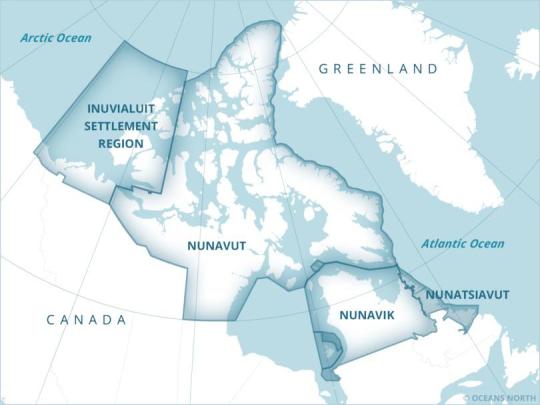
The different arras of the Inuit Nunangat.
bunglejerry:
For those wondering, Nunavut has full status as a territory of Canada; the other three components are semi-autonomous regions of other provinces or territories of Canada. Nunatsiavut is part of Newfoundland and Labrador (the latter, to be specific), Nunavik is part of Québec, and most of Inuvialuit is in Northwest Territories though a small bit is in Yukon.
'Small bit' is a relative term, of course. This is a truly massive area we're talking about.
zone area pop % Inuit
Nunavut 2,039,000km² 36,900 85%
Inuvialuit 435,000km² 5,300 58%
Nunavik 443,700km² 14,000 90%
Nunatsiavut 66,800km² 2,300 88%
That's a total area of 2,985,000km², still a little bit smaller than the Sakha Republic but larger than all but seven countries in the world. And yet a population of less than 60,000.
130 notes
·
View notes
Text
The Five Parts of Canada, for Non Canadians
Central: Southern Ontario and Quebec. Toronto thinks it’s New York City. Montreal is San Francisco with less gay and more New Orleans. This is Canada’s most populous region, and only thinks about itself. The parts of the US that consider the rest Flyover Country, but right next to each other. You will notice that they are called the Central region despite not being anywhere near the centre.
Atlantic: Consists of the Maritimes, along with Newfoundland and Labrador. They are often forgotten, even though they include 3 of the 5 original provinces of Canada. There were largely founded by Irish and Scottish immigrants, and includes some of the oldest regions in Canada. This is partially because they have never been economically successful enough to really improve themselves.
The West: Western Ontario through the Rockies. This is the conservative heartland that just wants to be left alone, and the Central Provinces have basically declared war with. If the US has a peaceful divorce, there is a high chance they’ll just join the Red faction. There is a strong desire to simply separate from the rest of Canada. They contain The Oil Patch, the majority of the Canadian. No link, because Wikipedia doesn’t have the article. Because Wikipedia doesn’t care about the opinions of the people that actually live there. They use the older and deprecated one that includes all of British Colombia.
Lower Mainland + Vancouver Island: Culturally and ecologically contiguous with Washington (state) and Oregon.
The North: Most of Canadians live near the border. The further north you go, the less populous it gets. Most provinces have 1 or 2 ridings (electoral districts) for their entire northern half, and then beyond that we have the territories that are too sparsely populated to be provinces.
6 notes
·
View notes
Text
Bekah Simms (*1990)
swallow/breathe, for string quartet (2016)
Commissioned in part to acknowledge Canada 150, the country's sesquicentennial; however, being from Newfoundland where a strong regional identity prevails, I found it challenging to ruminate on Canada's confederation, especially when Newfoundland had joined less than 70 years ago (and with considerable consternation.)
Instead, I took this opportunity to write a piece that reflected my own regional heritage, one that has become stronger since moving away. I engaged with this by creating a type of setting of a Newfoundland folk song, one of our most famous: "She's Like the Swallow." However, the song is fragmented and distorted as though with distance - it's the ghost of a song, only becoming clear at the very end.
Premiered (in full) May 5, 2017, at the Conservatorio di Musica “Giuseppe Tartini," Trieste, Italy.
Snezana Acimovic (Violin I). Işınsu Ermiş (Violin II). Liubov Zuraeva (Viola). Sercin Yatkın (Cello)
Impurity chains. Bekah Simms (2018, Centrediscs – CMCCD 26118)
4 notes
·
View notes
Text
Feds warn 2023 on track to be the worst fire season ever seen in Canada
Canada's emergency preparedness minister says images of wildfires burning across the country are some of the most severe ever witnessed in Canada and the current forecast for the next few months indicates the potential for continued higher-than-normal fire activity.
Bill Blair and six other federal cabinet ministers provided an update Monday on Canada's wildfire situation, even as smoke from fires north and west of the city covered Parliament Hill's Peace Tower in a grey haze.
Climate Barometer newsletter: Sign up to keep your finger on the climate pulse
Download our app to get breaking news alerts delivered right to you
The BC Wildfire Service says the Donnie Creek wildfire, which has grown to more than 2,400 square kilometres in size, is now considered the second largest in provincial history, while Nova Scotia's largest ever wildfire continues to burn out of control.
Environment Canada has issued a special air quality statement for a large section of southern Ontario, with the agency warning of high levels of air pollution as a result of smoke plumes from local forest fires as well as forest fires in Quebec.
As of late Monday afternoon, 424 fires were burning across Canada, more than 250 of which are considered out of control.
A new fire risk forecast shows that risk remains well above average in parts of every province and territory except Newfoundland and Labrador, where the risk in most of Labrador is still above average, while the risk in Newfoundland is just average.
from CTV News - Atlantic https://ift.tt/yHxL5FI
3 notes
·
View notes